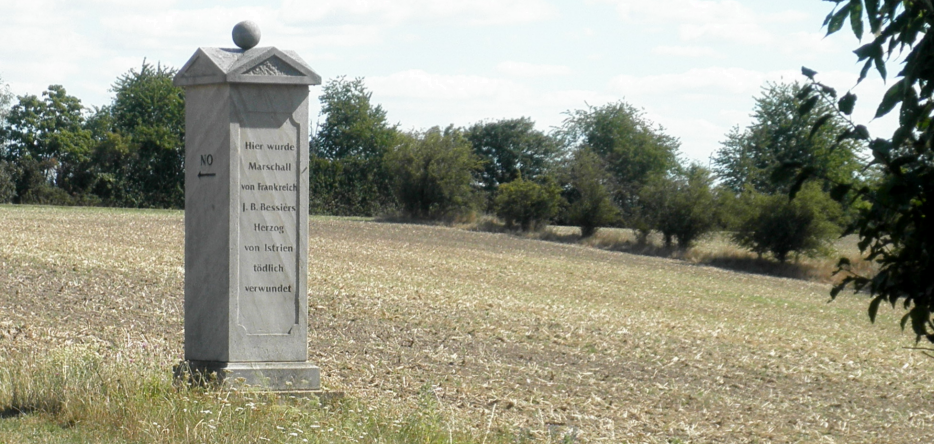January 1813
1st January 1813 – Marshal Joachim Murat left Königsberg [nowadays Kaliningrad] .
7 January 1813 – The Emperor accepted an Austrian mediation in the Franco-Russian conflict.
11 January 1813 – A Senatus consultum mobilized 350,000 men: 100,000 men from classes 1809 to 1812; 150,000 men from class 1813 and 100,000 men from the National Guard.
13 January 1813 – Murat abandoned his command to return to Naples [Napoli] .
19 January 1813 – Napoleon had an interview with Pope Pius VII at Fontainebleau .
25 January 1813 – A new Concordat was signed, still in Fontainebleau.
26 January 1813 – Joachim Murat was received by Napoleon and accused by him of having abandoned his army.
February 1813
1st February 1813 – The Count of Provence published a message to the French people, from his residence of Hartwell, England.
3 February 1813 – Napoleon resolved to offer Illyria to Austria to retain it in his alliance.
4 February 1813 – Murat arrived in Naples .
5 February 1813 – In France, a Senatus consultum organized regency.
9 February 1813 – Russians entered Warsaw [Warszawa]. The Grand Duchy no longer existed.
10 February 1813 – King Frederick William III of Prussia ordered a mass conscription in his entire kingdom.
22 February 1813 – Russo-Prussian Treaty of Kalisch.
26 February 1813 – Murat proposed his alliance with Austria in exchange for recognition of his title as King of Naples; the Austrians refused.
March 1813
1st March 1813 – The King of Prussia signed a treaty of alliance with Russia.
4 March 1813 – The Russians entered Berlin.
10 March 1813 – Creation of the Order of the Iron Cross by Frederick William III of Prussia.
11 March 1813 – The Count of Provence reminded his rights to the throne in a manifesto.
17 March 1813 – The French evacuated Dresden.
18 March 1813 – King of Spain Joseph definitively left Madrid.
19 March 1813 – Treaty of Breslau [today Wrocław] between Prussia and Russia.
22 March 1813 – The King of Prussia returned to Berlin.
23 March 1813 – Napoleon told the Corps Législatif he would take command of the army.
24 March 1813 – Pope Pius VII retracted and denounced the Concordat of Fontainebleau.
26 March 1813 – Prussians entered Dresde and the King of Saxony ran away.
27 March 1813 – Prussia officially declared war on France. Its ambassador demanded his passports.
29 March 1813 – Russia and Austria signed a secret pact.
30 March 1813 – Establishment of a Regency Council: Empress Marie-Louise became regent and Jean-Jacques Régis de Cambacérès was appointed privy councilor.
31 March 1813 – Russians entered Leipzig.
April 1813
3rd April 1813 – A Senatus consultum mobilized 180,000 additional troops.
15 April 1813 – Departure of Napoleon for the army.
25 April 1813 – Arrival of the Emperor in Erfurt. He took command of troops.
29 April 1813 – Fight of Weissenfels.
May 1813
1st May 1813 – Marshal Jean-Baptiste Bessières, Duke of Istria, died in Rippach, after having been mortally wounded near [51.22674, 12.06877] the village.

2nd May 1813 – Battle of Lützen.
8 May 1813 – Napoleon entered the city of Dresden, which had been abandoned by the allied sovereigns.
10 May 1813 – The French army crossed the river Elbe in the presence of Napoleon.
12 May 1813 – The King of Saxony returned to Dresden.
20 and 21 May 1813 – Battle of Bautzen (or Wurschen).
22 May 1813 – Géraud Michel Duroc, Grand Marshal of the Palace, was killed during the pursuit of the defeated allies.
27 May 1813 – Allies retreated towards Breslau. In Spain, the French definitively left Madrid.
29 May 1813 – Marshal Louis-Nicolas Davout resumed Hamburg.
June 1813
4 June 1813 – An armistice for two months was signed at Pleiswitz.
14 June 1813 – England and Prussia signed the Treaty of Reichenbach, the first gave the latter a subsidy of 666,660 pounds sterling to continue the war.
15 June 1813 – Russia, on the other hand, received 1,333,334 pounds to continue the war.
29 June 1813 – The command of the Prussian army was entrusted to Gebhard Leberecht von Blücher.
July 1813
2nd July 1813 – The bulk of the French army crossed the river Bidassoa and left Spain.

5 July 1813 – Louis Gabriel Suchet evacuated Valencia.
12 July 1813 – Jean-de-Dieu Soult took the command of the Army of Spain.
26 July 1813 – Former French General Jean Victor Marie Moreau arrived in Sweden.
29 July 1813 – Peace negotiations opened in Prague [Praha].
August 1813
10 August 1813 – Napoleon, anticipating the resumption of hostilities, celebrated his birthday in advance in Dresden. The king and princes of Saxony attended a parade which gathered forty thousand men.
11 August 1813 – Denunciation of the armistice. Austrians and Prussians joined up.
12 August 1813 – Austria received 500,000 pounds and declared war on France.
14 August 1813 – Blücher initiated the hostilities.
26 August 1813 – First day of the battle of Dresden.
27 August 1813 – Battle of Dresden (continued). General Moreau, who had joined the russian ranks, was mortally wounded on the battlefield. Blücher retreated.
September 1813
3rd September 1813 – Napoleon pursued Blücher.
6 September 1813 – Marshal Michel Ney was beaten by Prussians under Friedrich Wilhelm von Bülow at Dennewitz.
23 September 1813 – Prussians retreated to the river Spree.

October 1813
8 October 1813 – Bavaria defected and joined the coalition in the Treaty of Ried.
9 October 1813 – Call in advance of class 1815 (160,000 men).
16 October 1813 – Battle of Leipzig (Battle of the Nations).
17 October 1813 – Second day of the battle of Leipzig.
18 October 1813 – Last day of the battle of Leipzig; the Saxon army defected.
19 October 1813 – Retreat of the French army.
23 October 1813 – Napoleon arrived at Erfurt. Murat left him to return to Naples.
30 October 1813 – The retreating Grand Army defeated the Bavarians at Hanau, in Hesse.
31 October 1813 – Prince Eugene and General Paul Grenier defeated the Austrians in Bassano del Grappa.
November 1813
2nd November 1813 – French army evacuated Frankfurt and crossed back the river Rhine.
3rd November 1813 – The King of Württemberg joined the allies.
7 November 1813 – Napoleon left Mainz.
9 November 1813 – He arrived at Saint-Cloud.
11 November 1813 – Marshal Laurent de Gouvion Saint-Cyr capitulated in Dresden.
12 November 1813 – The allies came to Dusseldorf.
16 November 1813 – People uprised against the French in Amsterdam.
22 November 1813 – The Russians reached Amsterdam.
25 November 1813 – Defection of the Grand Duke of Baden.
30 November 1813 – The Prince of Orange landed in Holland.
December 1813
2nd December 1813 – The allies crossed the river Rhine.
9 December 1813 – Evacuation of Breda by the French.
10 December 1813 – The British landed in Tuscany.
12 December 1813 – A treaty was signed at Valençay Castle between France and Ferdinand VII, which recognized him as King of Spain.
15 December 1813 – Armistice was signed between Russia and the King of Denmark.
21 December 1813 – The Allied armies entered Switzerland.
23 December 1813 – The Austrians appeared in Alsace (eastern France).
26 December 1813 – Twenty-three senators and councilors of state were sent in the military divisions; they acted as special commissioners to expedite the conscription and national guards.
29 December 1813 – French Corps législatif, by 223 votes against 51, voted a report of its committees, condemning the ambitious activity
of the Emperor, asking him to declare that he would continue the war for independence and territorial integrity of France, and begging to keep the laws that guaranteed to French a free exercise of their political rights.
30 December 1813 – Occupation of Geneva by the Austrians.
31 December 1813 – Napoleon I adjourned the Corps législatif and banned the printing of the report voted on December 29.
Photo credits
Photos by Lionel A. Bouchon.Photos by Michèle Grau-Ghelardi.
Photos by Marie-Albe Grau.
Photos by Floriane Grau.
Photos by Didier Grau.
Photos by people outside the Napoleon & Empire association.